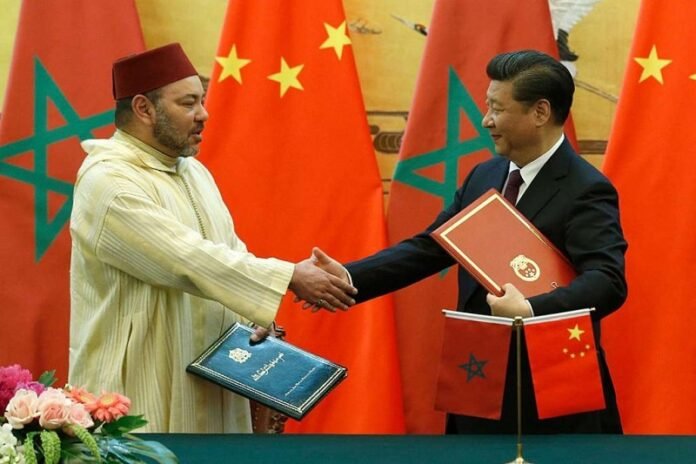In recent decades, China has emerged as an ambitious global economic power seeking to expand its influence worldwide. The Belt and Road Initiative, also known as the New Silk Road, is one of the primary tools it uses to achieve these ambitions. Morocco, with its strategic location as a gateway to Africa and Europe, has become a key focal point in this Chinese strategy. But has China truly found a new Silk Road through Morocco? And could this growing partnership between the two nations become a source of concern for certain Western powers, especially the United States?
Morocco: China’s Gateway to Europe and Africa
By strengthening its economic partnerships with Morocco, China sees the country as a strategic entry point for accessing European and American markets. Morocco, with its exceptional geographic location, serves as a bridge between Africa and Europe, making it an ideal partner for China under the Belt and Road Initiative. China’s investments in Morocco, particularly in the electric vehicle manufacturing sector, are part of this strategy, as China uses Morocco to circumvent US and European sanctions aimed at curbing its influence in global markets.
Strategic Investments and the Future of Bilateral Relations
Reports highlight significant investments, such as the CNGR project in partnership with the “Al Mada” fund, in which King Mohammed VI holds a substantial share, alongside other investments aimed at producing electric vehicle batteries and developing the mining sector, which includes essential minerals like cobalt and copper, crucial for electric vehicle production. These investments are not limited to the Moroccan market but are part of a broader Chinese strategy to penetrate European and American markets via ports such as Tangier Med, which offers China quick access to Europe and the US.
What About Western Concerns?
It’s natural that these developments raise concerns in the US and certain European countries. China is not only looking to strengthen its presence in the African market through Morocco but is also aiming to circumvent US inflation reduction laws, which offer tax advantages to companies collaborating with countries that have free trade agreements with the US, such as Morocco. This strategic use of Morocco might irk the US, which fears that China is using the country as a backdoor to access its markets indirectly.
Is Morocco Benefiting or Merely a Tool?
The question remains: Is this strategic Sino-Moroccan partnership a real opportunity for Morocco to benefit from Chinese investments? Or is China merely using Morocco to further its own interests at the expense of Morocco’s relationships with the West? Experts suggest that Morocco could greatly benefit from this partnership if Chinese investments are well-planned and directed toward supporting the local economy and creating new jobs.
Does the New Silk Road Affect the Geopolitical Balance?
While the New Silk Road strengthens ties between China and participating countries, some analysts believe that this Chinese expansion could lead to shifts in geopolitical balances. The Sino-Moroccan partnership may increase diplomatic pressures on Morocco from some Western powers, which fear China’s growing influence in the region, especially as Morocco is a strategic ally of the US and Europe.
Conclusion: Opportunity or Threat?
Ultimately, the Sino-Moroccan partnership may be a key part of China’s strategy to revitalize the New Silk Road while giving Morocco an opportunity to enhance its position as a regional economic player. However, this rapprochement is not without challenges and may require Morocco to balance its strategic interests between China and its traditional Western allies.


